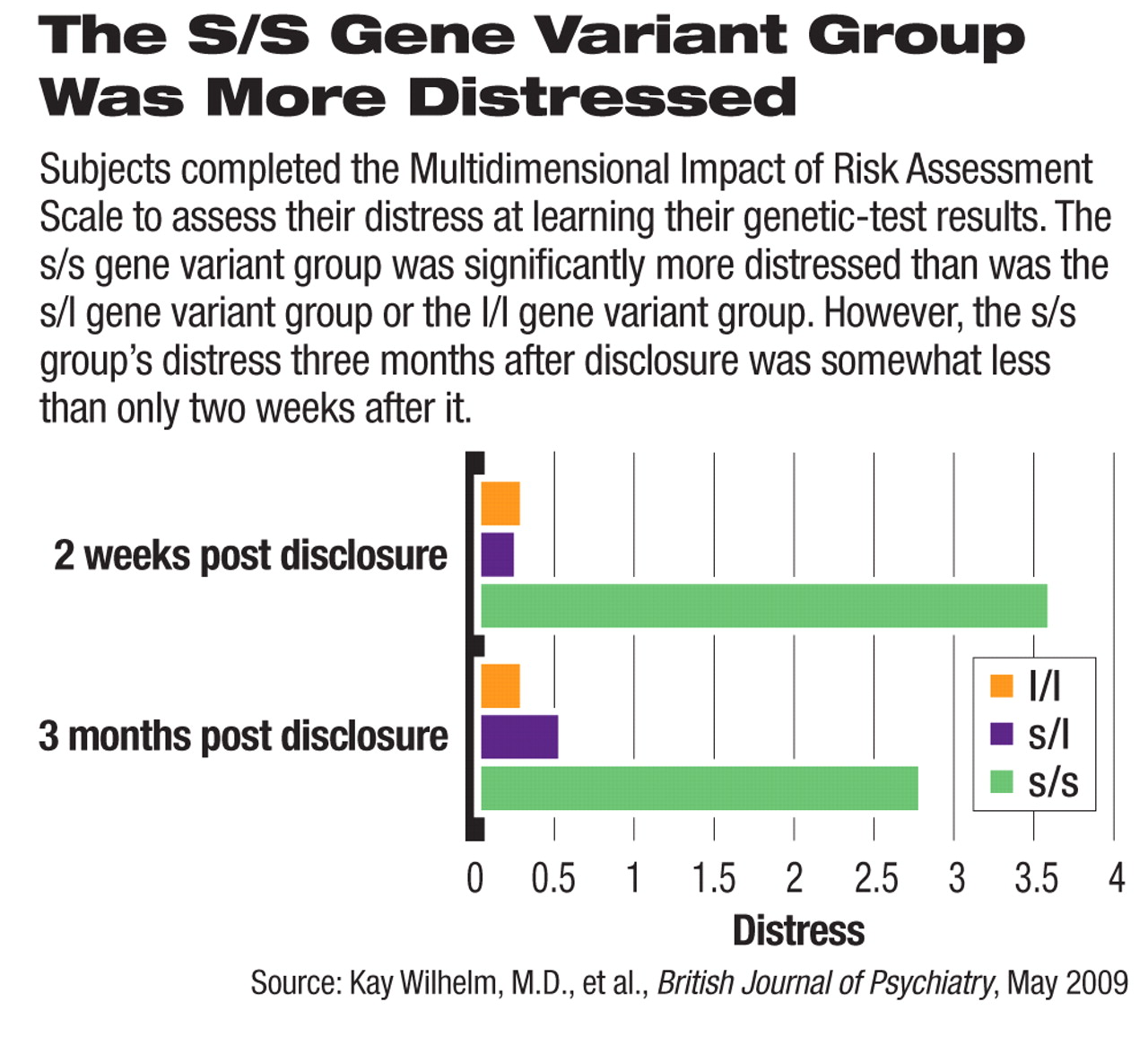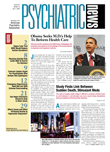Researchers are becoming increasingly interested in resilience to stress or adversity and in empowering people so that they can become more resilient.
One way they might empower individuals to become more resilient is to tell them whether they possess the s/s variant of the gene that makes the promoter region of the serotonin transporter. People with the s/s variant appear to have less serotonin activity in their brains than people with the s/l or l/l variant of the gene.
Also, people with the s/s variant are more likely than those with the s/l or l/l variant to experience a major depression in the throes of adverse life events. So if people knew that they possessed the s/s variant, they might then be in a position to take proactive measures to shield themselves from stressful events and thereby ward off stress-induced depression.
But would people want to be tested for the s/s gene variant? Kay Wilhelm, M.D., a conjoint professor of psychiatry at the University of New South Wales, Sydney, Australia, and her colleagues conducted a study to find out.
Their study included 128 subjects who already were part of a longitudinal study investigating risk factors for depression. All of the subjects had been genotyped to see whether they possessed the s/s variant, the s/l variant, or the 1/1 variant of the serotonin transporter gene.
The researchers asked the subjects whether they would like to learn if they possessed a particular gene variant that confers considerable susceptibility to depression rather than causing it for sure—in other words, the s/s variant. Eighty-four (66 percent of the sample) said that they would.
“We were surprised by the level of interest in finding out results, particularly by parents, who were thinking of their children's vulnerability,” Wilhelm told Psychiatric News.
After the 84 subjects had been given their results—15 had the s/s variant, 40 had the s/l variant, and 29 had the l/l variant—the researchers followed them to see how receiving their results impacted them psychologically.
At both the two-week and three-month follow-up, 92 percent of the subjects reported feeling pleased that they had received their result, especially those who had thought that they were in the vulnerable group and had learned that they were not. However, the researchers also reported that at the two-week and three-month follow-up, individuals in the s/s group demonstrated significantly higher distress levels after getting their result than individuals in the s/l and l/l groups did.
Nonetheless, learning that they had a special susceptibility to stress-induced depression gave the s/s group an opportunity to take a proactive stance on the matter—that is, to protect themselves from stress or to manage themselves better in stressful circumstances, Wilhelm pointed out. A number had already experienced a major depression, she said, and learning that they had the s/s variant simply “reinforced my comments that they should ensure that they had good methods for coping with stress.”
Some Web sites can help such individuals acquire effective methods for dealing with stress, she noted—the MoodGym Training Program at<www.moodgym.anu.edu.au>, Reach Out Central at<www.reachout.com.au>, and Authentic Happiness at<www.authentichappiness.sas.upenn.edu>.
Study results were published in the May British Journal of Psychiatry. The study was funded by the Australian National Health and Medical Research Council and by the New South Wales Department of Health.

